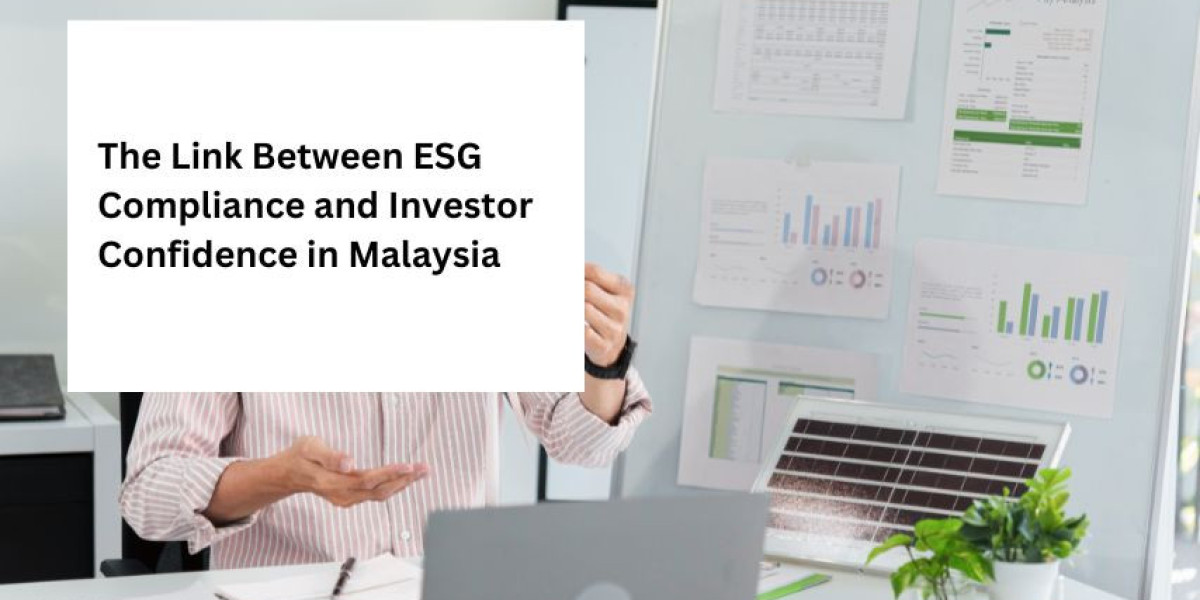A significant shift is underway in Malaysia's investment landscape. Gone are the days when financial returns were the sole measure of a company's success. Today, investors are increasingly looking beyond the balance sheet, scrutinizing a company's commitment to Environmental, Social, and Governance (ESG) principles. This growing emphasis on ESG is reshaping how businesses operate and how investors allocate capital, forging a powerful link between corporate responsibility and financial performance.
For Malaysian companies, understanding and integrating ESG compliance is no longer a choice but a strategic imperative. As both local and international investors place a premium on sustainability and ethical practices, a strong ESG profile has become a key driver of investor confidence. This article explores the critical relationship between ESG compliance and investor sentiment in Malaysia, examining the regulatory landscape, the tangible benefits of adoption, and the future of sustainable investing in the nation.
Understanding the ESG Framework in Malaysia
ESG criteria provide a comprehensive framework for evaluating a company's performance in three key areas: its environmental impact, its relationships with stakeholders, and its internal governance structures. Each pillar represents a different aspect of a company's operational integrity and long-term viability.
Environmental: Beyond Green Initiatives
The environmental component assesses a company's stewardship of the natural world. This extends far beyond simple recycling programs. It involves a critical look at energy consumption, waste management, pollution control, natural resource conservation, and a company's overall carbon footprint. In Malaysia, a nation rich in biodiversity and natural resources, this pillar is particularly significant. Industries like palm oil, manufacturing, and energy face intense scrutiny over issues such as deforestation, water pollution, and greenhouse gas emissions. Companies that demonstrate a proactive approach to minimizing their environmental impact are viewed as more resilient and forward-thinking.
Social: The Human Element of Business
The social pillar focuses on how a company manages its relationships with employees, suppliers, customers, and the communities where it operates. Key considerations include labor standards, health and safety protocols, diversity and inclusion policies, and community engagement. In Malaysia's multicultural society, fostering a diverse and equitable workplace is not just a social good; it is a business advantage. Investors look for evidence that a company treats its workforce fairly, invests in its people, and contributes positively to society. Strong social performance can enhance brand reputation, attract top talent, and build lasting customer loyalty.
Governance: The Bedrock of Trust
Governance refers to the systems and processes that guide a company's leadership, accountability, and transparency. This includes executive compensation, shareholder rights, internal controls, and ethical business practices. Robust governance is the foundation of investor confidence. It assures stakeholders that a company is managed responsibly, with integrity, and in the best interest of its shareholders. In the Malaysian context, strong governance helps mitigate risks associated with corruption and cronyism, signaling to investors that their capital is in safe hands.
The Drivers of ESG Adoption in Malaysia
The push towards ESG compliance in Malaysia is not happening in a vacuum. It is propelled by a combination of regulatory pressure, market demand, and a growing recognition of the financial benefits of sustainability.
Regulatory and Governmental Push
The Malaysian government and its regulatory bodies have been instrumental in promoting the ESG agenda. Bursa Malaysia, the national stock exchange, has integrated ESG reporting requirements into its listing rules. The FTSE4Good Bursa Malaysia (F4GBM) Index, launched in 2014, tracks public listed companies that demonstrate strong ESG practices, providing a benchmark for sustainable investment.
Furthermore, initiatives like the Sustainable and Responsible Investment (SRI) Roadmap by the Securities Commission Malaysia aim to position the country as a regional leader in SRI. These regulatory frameworks create a clear expectation for companies to disclose their ESG performance, making it easier for investors to assess and compare potential investments.
The Rise of the Conscious Investor
Investor demand is another powerful catalyst. A new generation of investors, including large institutional funds and individual retail investors, is increasingly incorporating ESG criteria into their investment decisions. They recognize that companies with poor ESG records are exposed to greater risks, including regulatory fines, reputational damage, and operational disruptions. Conversely, companies with strong ESG performance are often better managed, more innovative, and better positioned for long-term growth. This shift in investor sentiment is forcing companies to take ESG seriously to attract and retain capital.
The Financial Case for ESG
Beyond compliance and investor demand, there is a compelling business case for adopting ESG principles. Effective ESG management can lead to significant financial benefits:
- Enhanced Risk Management:Proactive management of environmental and social risks can prevent costly accidents, legal challenges, and supply chain disruptions.
- Improved Operational Efficiency:Initiatives to reduce energy and water consumption not only benefit the environment but also lower operating costs.
- Greater Access to Capital:A strong ESG profile can open doors to a growing pool of capital from sustainability-focused funds and investors.
- Increased Brand Value:Companies known for their commitment to sustainability often enjoy stronger brand loyalty and a better public image.
How ESG Compliance Builds Investor Confidence
Investor confidence is built on trust, transparency, and the expectation of sustainable returns. ESG compliance directly supports all three of these pillars, creating a virtuous cycle that benefits both companies and their investors.
Transparency and Disclosure
Mandatory ESG reporting forces companies to be more transparent about their operations. This disclosure provides investors with a wealth of non-financial data that can be used to assess a company's long-term prospects and potential risks. When a company openly reports on its ESG metrics—both positive and negative—it signals a commitment to accountability. This transparency builds trust and gives investors the information they need to make informed decisions, reducing uncertainty and increasing confidence.
Mitigating Non-Financial Risks
Traditional financial analysis often overlooks significant non-financial risks that can have a material impact on a company's bottom line. ESG analysis helps identify and mitigate these risks. For example, a manufacturing company that fails to invest in modern pollution control technology may face future regulatory penalties or community opposition. A plantation company that relies on unethical labor practices could suffer from supply chain disruptions and consumer boycotts.
By integrating ESG principles into their strategies, Malaysian companies can demonstrate to investors that they are proactively managing these risks. This foresight provides a crucial layer of assurance, suggesting that the company is built for resilience and long-term stability.
A Proxy for Quality Management
A company’s commitment to ESG is often seen as a proxy for the quality of its management. A leadership team that is attentive to environmental impacts, employee welfare, and ethical governance is likely to be disciplined, forward-thinking, and effective in other areas of the business as well. Investors interpret a strong ESG framework as a sign of a well-run company with a clear strategic vision. This perception of competent leadership is a powerful driver of investor confidence, as it suggests that the company is capable of navigating challenges and capitalizing on opportunities.
Conclusion
The connection between ESG compliance and investor confidence in Malaysia is undeniable and growing stronger. As the global investment community continues to prioritize sustainability, Malaysian companies that embrace ESG principles will be the ones to attract capital, build trust, and achieve long-term success. For investors, ESG provides a more complete picture of a company's health and potential, enabling them to make smarter, more responsible investment choices.
The path forward is clear. By continuing to strengthen the regulatory framework, encouraging greater transparency, and celebrating the successes of ESG leaders, Malaysia can solidify its position as an attractive destination for sustainable investment. ESG compliance is not just about ticking boxes; it is about building resilient, responsible, and profitable businesses that can thrive in the 21st-century economy. For Malaysian companies and investors alike, embracing ESG is the key to unlocking sustainable growth and securing a prosperous future.



